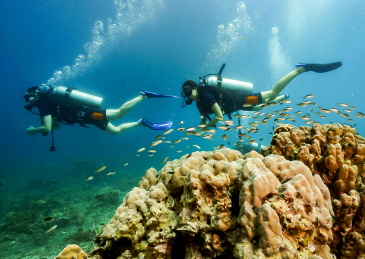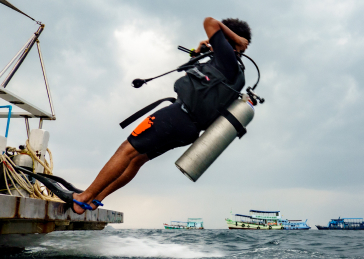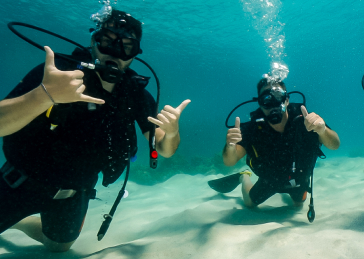Modified 9th June 2025
Marine Biology for Divers: Enhance Your Koh Tao Divemaster Training
✓ Learn to identify 50+ marine species and understand their ecological roles
✓ Contribute to conservation research through citizen science data collection
✓ Develop skills for careers in marine conservation and scientific diving
✓ Lead educational dives that inspire environmental awareness
✓ Master sustainable diving practices that protect marine ecosystems
Marine biology for divers represents the perfect fusion of adventure and science in Koh Tao’s underwater paradise. Rather than simply learning dive leadership skills, this enhanced divemaster training incorporates comprehensive marine science education that transforms you into both a skilled professional and an ocean conservation advocate.
This comprehensive guide explores how marine biology for divers enhances traditional divemaster certification, what you’ll discover about Koh Tao’s marine ecosystems, and how this specialized knowledge can launch your career in marine conservation or scientific diving.
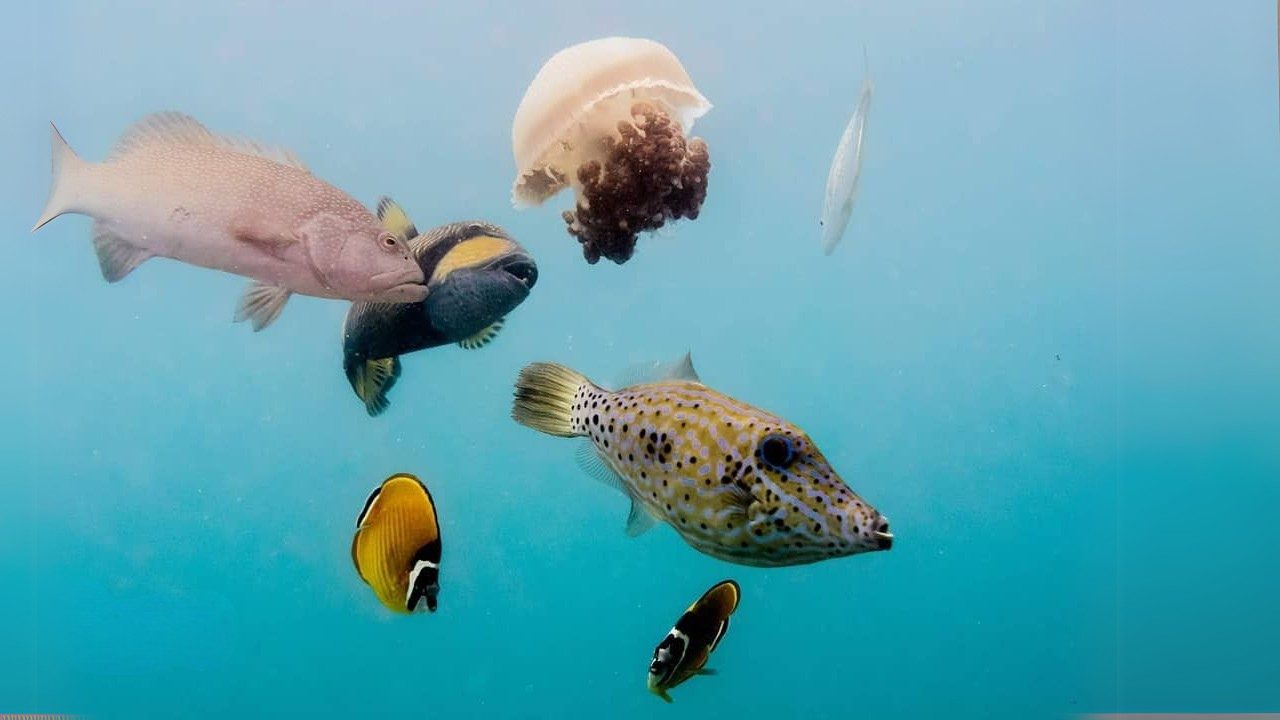
Why Marine Biology for Divers Matters in Koh Tao
Marine biology for divers goes beyond basic fish identification – it provides the scientific framework for understanding complex underwater ecosystems. Koh Tao’s diverse marine environments offer an exceptional classroom where divemasters can study coral reef dynamics, predator-prey relationships, and conservation challenges firsthand.
Core Components of Marine Biology for Divers
Effective marine biology for divers training encompasses multiple scientific disciplines that enhance your understanding of underwater environments. This knowledge transforms routine dives into educational experiences for guests while contributing to conservation efforts.
Species Identification: Essential Marine Biology for Divers
Marine Biology for Divers Species Recognition
Mastering species identification forms the foundation of marine biology for divers education. In Koh Tao’s waters, you’ll learn to recognize and understand the ecological roles of diverse marine inhabitants:
Hawksbill and Green turtles – understanding feeding habits, nesting behaviors, and conservation status
Angelfish, butterflyfish, parrotfish – learning family characteristics and ecological roles
Blacktip sharks, rays – understanding behavior patterns and safety protocols
Corals, sponges, nudibranchs – recognizing diverse forms and ecological functions
Wrasses and gobies – understanding cleaning station dynamics and symbiotic relationships
Sea stars, urchins, sea cucumbers – learning about reef health indicators and threats
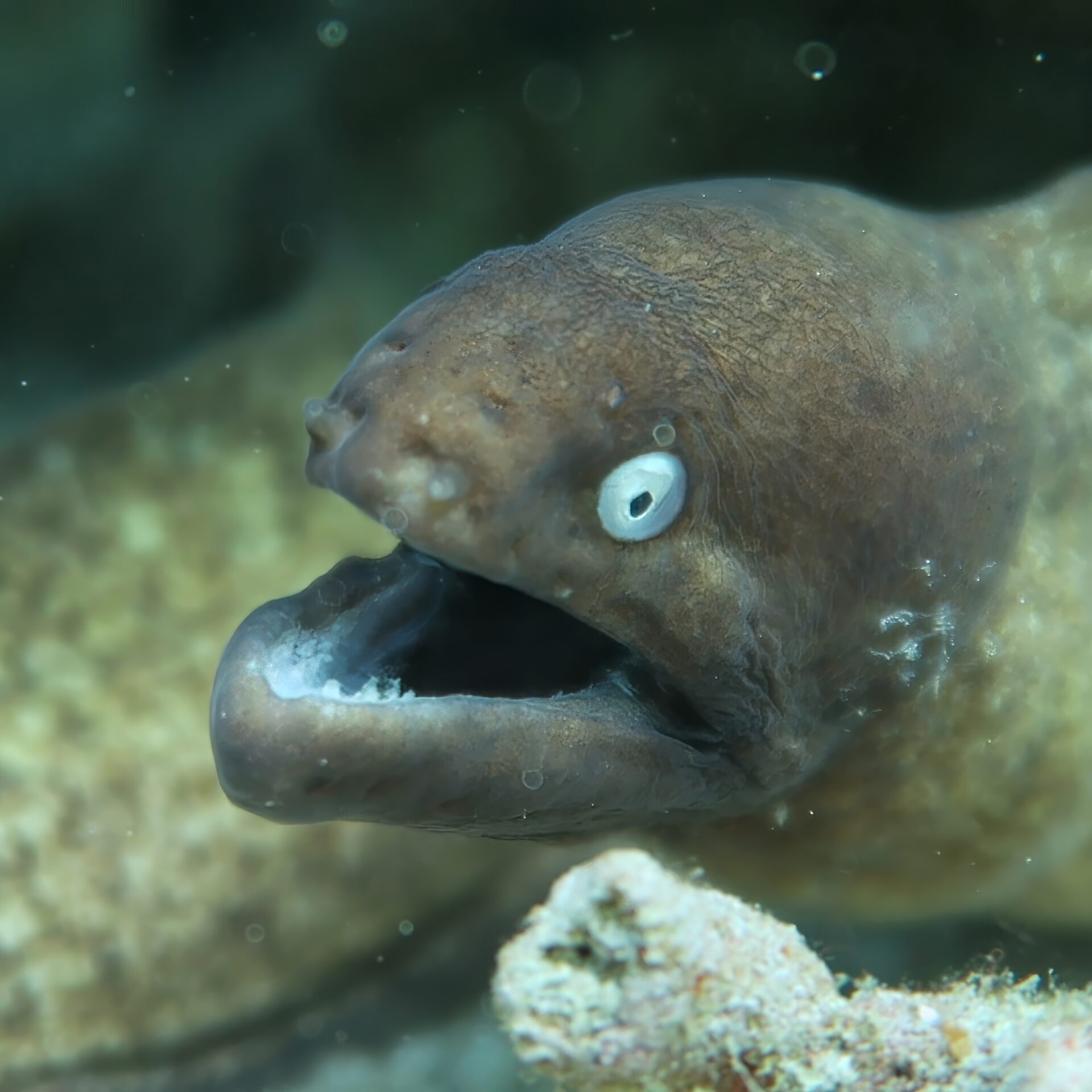
Behavioral Observation Skills
Advanced marine biology for divers training teaches you to observe and interpret animal behaviors beyond basic identification. Understanding feeding patterns, territorial displays, mating rituals, and stress responses helps you guide divers responsibly while gathering valuable scientific data for conservation research.
Learn to recognize signs of healthy versus stressed marine life. Bright colors, active feeding, and normal swimming patterns indicate healthy animals, while pale coloration, lethargy, or unusual positioning may signal environmental stress or disease.
Conservation Through Marine Biology for Divers
Participating in Research Initiatives
Marine biology for divers training includes comprehensive participation in ongoing research projects. These citizen science initiatives allow certified divemasters to contribute meaningful data while enhancing their scientific knowledge:
- Coral Health Monitoring: Document coral bleaching events, disease outbreaks, and recovery patterns
- Fish Population Surveys: Count and identify species during standardized survey dives
- Water Quality Assessment: Record temperature, visibility, and other environmental parameters
- Marine Debris Tracking: Document pollution sources and participate in cleanup efforts
- Species Behavior Studies: Observe and record unusual or interesting animal behaviors
Scientific data collection requires precision and consistency when applying marine biology for divers principles. Proper training teaches standardized protocols for recording observations, ensuring your contributions meet research standards and provide valuable information for ongoing conservation efforts in Koh Tao’s marine environments.
Specialized Equipment for Marine Biology for Divers
Scientific Tools Enhancing Marine Biology for Divers
Professional divemasters trained in marine biology for divers utilize specialized equipment to enhance observation capabilities and contribute effectively to research efforts:
Career Advancement Through Marine Biology for Divers
Professional Pathways with Marine Biology for Divers Training
Combining divemaster certification with marine biology for divers expertise opens diverse career opportunities in conservation, research, and environmental education:
Support marine research projects with diving skills and species identification knowledge
Lead educational dive tours focusing on marine ecology and conservation awareness
Work in protected areas, combining dive leadership with conservation enforcement
Pursue advanced certifications for underwater research and data collection
Advise on marine environmental impact assessments and conservation strategies
Lead independent research projects combining field experience with academic study
Educational Advancement Opportunities
Your marine biology for divers certification provides a strong foundation for advanced education in marine sciences. Many professionals pursue specialized degrees, marine resource management programs, or advanced certifications in underwater research techniques, building upon their practical diving experience gained during optimal diving conditions in Koh Tao.
Implementing Marine Biology for Divers in Practice
Marine biology for divers knowledge fundamentally transforms how you approach dive leadership and environmental stewardship. Understanding ecosystem fragility through scientific training helps you implement and teach sustainable practices that protect the environments you explore:
- Buoyancy Mastery: Perfect neutral buoyancy prevents reef damage and sediment disturbance
- Wildlife Interaction Guidelines: Maintain appropriate distances based on species behavior and stress indicators
- Photography Ethics: Capture images without manipulating marine life or damaging habitats
- Group Management: Control dive group impacts through proper briefings and underwater supervision
- Environmental Awareness: Recognize and respond to signs of ecosystem stress or human impact
Transform your diving passion into scientific expertise with our comprehensive marine biology for divers divemaster program.
La Bombona Diving’s divemaster course uniquely integrates marine biology for divers education, preparing you for a meaningful career in ocean conservation and professional dive leadership.
- Comprehensive marine biology for divers curriculum
- 60 days of intensive training and unlimited ocean diving
- Hands-on marine species identification and ecosystem education
- Participation in active conservation projects
- Scientific diving techniques and data collection methods
- Professional development in dive leadership
- Career guidance for marine conservation opportunities
- Experienced instructors with marine biology backgrounds
Divemaster Certification: ฿40,000 – Includes unlimited ocean diving, all training materials, and conservation project participation
Begin Your Divemaster Journey60-day program | Professional certification | Marine biology for divers focus | Conservation training included
Frequently Asked Questions
Dive with LBD: Your Gateway to Underwater Exploration
Whether you’re a curious beginner or a seasoned pro, our school is your portal to the wonders of scuba diving. Join us into the world beneath the waves.
READY TO GET STARTED?
Check our diving courses in Koh Tao
